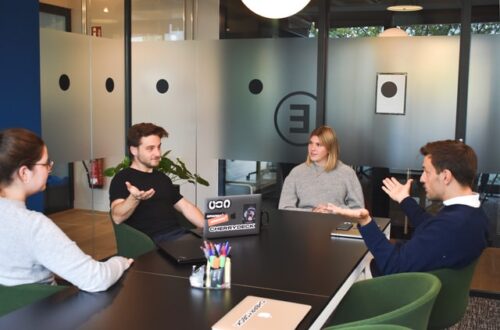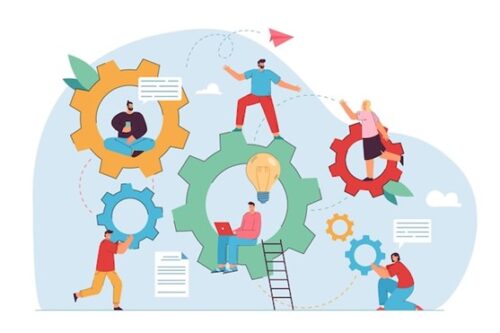Adelaide, a thriving city known for its vibrant business landscape, is home to numerous workplaces that strive for resilience and productivity. In this era of constant change and uncertainty, problem solving skills Adelaide effectively has become a crucial skill for organizations to stay competitive and adaptable. Problem-solving plays a pivotal role in building a strong foundation for resilient workplaces in Adelaide. By addressing challenges head-on and finding innovative solutions, organizations can not only navigate through uncertainties but also foster a culture of continuous improvement and growth.
Understanding the Role of Problem Solving in Increasing Productivity
Productivity is the lifeblood of any successful organization, and problem-solving is a key driver of enhanced productivity in Adelaide workplaces. When employees are equipped with problem-solving skills, they become adept at identifying and resolving issues that hinder efficiency. By encouraging a proactive approach to problem-solving, organizations in Adelaide can minimize bottlenecks, streamline processes, and optimize resource allocation. Moreover, problem-solving fosters a sense of ownership and accountability among employees, as they actively contribute to finding solutions and improving outcomes. This sense of empowerment leads to increased engagement, motivation, and ultimately, higher productivity.
Benefits of Problem Solving in Adelaide Workplaces
Problem-solving brings numerous benefits to workplaces in Adelaide, making it an essential skill for employees and organizations alike. Firstly, it promotes innovation and creativity. When individuals are encouraged to think critically and find solutions to complex problems, they are more likely to come up with novel ideas and approaches. This culture of innovation not only enhances productivity but also positions organizations as industry leaders. Additionally, problem-solving fosters effective communication and collaboration. As employees work together to tackle challenges, they develop stronger relationships, trust, and a shared sense of purpose. This collaborative environment fuels creativity and leads to better problem-solving outcomes.
Problem-solving also plays a crucial role in fostering resilience in Adelaide workplaces. In a rapidly changing world, organizations need to be agile and adaptable. By embracing problem-solving as a core value, organizations can navigate through uncertainties and quickly adapt to new circumstances. This resilience enables organizations to overcome obstacles, seize opportunities, and thrive in the face of adversity. Furthermore, problem-solving enhances decision-making. When employees are trained in problem-solving techniques, they learn to analyze situations, consider multiple perspectives, and make informed decisions. This leads to better outcomes and reduces the likelihood of costly mistakes.
Steps for Effective Problem Solving in the Workplace
To harness the power of problem-solving in Adelaide workplaces, organizations can follow a structured approach. The first step is to define the problem clearly. This involves identifying the root cause, understanding its impact on productivity, and setting clear objectives for resolving it. Once the problem is defined, organizations can gather relevant data and information to analyze the situation objectively. This step involves conducting research, consulting stakeholders, and considering different perspectives.
The next step is to generate potential solutions. This can be done through brainstorming sessions, where employees are encouraged to think freely and come up with creative ideas. After generating a range of solutions, organizations should evaluate each option based on feasibility, effectiveness, and alignment with organizational goals. The selected solution should then be implemented, while closely monitoring progress and making any necessary adjustments. Finally, organizations should evaluate the outcomes and learn from the experience, using the insights gained to continuously improve problem-solving processes.
Case Studies: Successful Problem Solving Initiatives in Adelaide
In Adelaide, several organizations have implemented successful problem-solving initiatives that have resulted in significant improvements in productivity and resilience. One such example is XYZ Company, a manufacturing firm that faced a recurring quality issue in their production line. By implementing a problem-solving framework, XYZ Company engaged employees at all levels to identify the root causes and develop solutions collaboratively. This approach not only resolved the quality issue but also empowered employees to take ownership of problem-solving, leading to a more resilient and productive workplace.
Another case study involves ABC Corporation, a technology company that experienced a decline in customer satisfaction. Through a problem-solving approach, ABC Corporation identified gaps in their customer service processes and implemented improvements. By involving employees directly in problem-solving initiatives, ABC Corporation not only resolved customer satisfaction issues but also fostered a culture of continuous improvement and innovation. These case studies demonstrate the transformative impact of problem-solving in Adelaide workplaces.
Implementing Problem Solving Strategies in Your Adelaide Workplace
To implement problem-solving strategies in your Adelaide workplace, it is important to create a supportive and inclusive environment. Encourage employees to share their ideas and perspectives, fostering a culture where everyone feels valued and empowered to contribute. Provide training and development programs that equip employees with problem-solving skills, ensuring they have the necessary tools and techniques to tackle challenges effectively. Additionally, establish channels for open communication and feedback, so that employees can share their insights and suggestions for improvement.
It is crucial to lead by example as well. Managers and leaders should demonstrate a commitment to problem-solving by actively participating in initiatives, showing transparency, and embracing a growth mindset. By setting a positive tone and reinforcing problem-solving values, leaders can inspire employees to embrace this mindset and make problem-solving a part of their daily work. Regularly recognize and celebrate problem-solving successes, fostering a culture that values and rewards innovative thinking.
Building a Culture of Problem Solving in Adelaide Workplaces
Building a culture of problem-solving requires a long-term commitment and consistent effort. Organizations in Adelaide can cultivate this culture by integrating problem-solving practices into their core processes. Establish problem-solving teams or committees that are responsible for identifying and addressing challenges across different departments. Encourage cross-functional collaboration, as diverse perspectives often lead to more creative and effective problem-solving outcomes. Foster a learning environment where mistakes are seen as opportunities for growth and improvement, encouraging employees to take calculated risks and think outside the box.
Regularly communicate the importance of problem-solving and its impact on productivity and resilience. Provide ongoing training and development opportunities to reinforce problem-solving skills and techniques. Encourage employees to share their problem-solving experiences and success stories, creating a platform for learning and knowledge sharing. By embedding problem-solving into the fabric of the organization, Adelaide workplaces can build a resilient and productive culture that adapts and thrives in the face of challenges.
Training and Development Programs for Problem Solving Skills in Adelaide
Adelaide offers a range of training and development programs that can enhance problem-solving skills in the workplace. Organizations can partner with reputable training providers that offer workshops and courses specifically tailored to problem-solving techniques. These programs typically cover topics such as critical thinking, decision-making, root cause analysis, and creative problem-solving. By investing in employee development, organizations not only equip their workforce with essential skills but also demonstrate a commitment to fostering a problem-solving culture.
Additionally, organizations can leverage online learning platforms that provide flexible and self-paced problem-solving courses. These platforms offer a wide range of resources, including interactive modules, case studies, and assessments. Employees can access these resources at their convenience, allowing them to learn and apply problem-solving techniques in their day-to-day work. Furthermore, organizations can encourage employees to participate in problem-solving competitions or challenges, fostering a sense of healthy competition and motivation to excel in problem-solving.
Measuring the Impact of Problem Solving on Workplace Resilience and Productivity
To measure the impact of problem-solving on workplace resilience and productivity, organizations in Adelaide can utilize various metrics and indicators. Productivity can be measured through key performance indicators (KPIs) such as output per employee, revenue generated, or customer satisfaction ratings. By comparing these metrics before and after implementing problem-solving initiatives, organizations can assess the effectiveness of their efforts.
Workplace resilience can be evaluated through metrics such as employee satisfaction, retention rates, and adaptability to change. Conducting regular employee surveys and collecting feedback can provide valuable insights into the impact of problem-solving on employee engagement and resilience. Additionally, organizations can track the number and severity of issues resolved through problem-solving initiatives, as well as the time taken to resolve them. These metrics can help gauge the effectiveness of problem-solving strategies in building a resilient workplace.
Conclusion: Creating a Resilient and Productive Workplace Through Effective Problem Solving in Adelaide
In conclusion, problem-solving plays a vital role in creating resilient and productive workplaces in Adelaide. By embracing problem-solving as a core value, organizations can enhance productivity, foster innovation, and navigate through uncertainties with agility and adaptability. Implementing problem-solving strategies, building a culture of problem-solving, and providing training and development programs are essential steps towards creating a resilient workplace. By measuring the impact of problem-solving initiatives, organizations can continuously improve their problem-solving processes and reap the benefits of a workforce equipped with this essential skill. Embrace problem-solving in your Adelaide workplace and build a strong foundation for success.
Interested in enhancing problem solving skills in your Adelaide workplace? Contact WHS and Training Compliance Solutions today to explore our tailored training and development programs.












